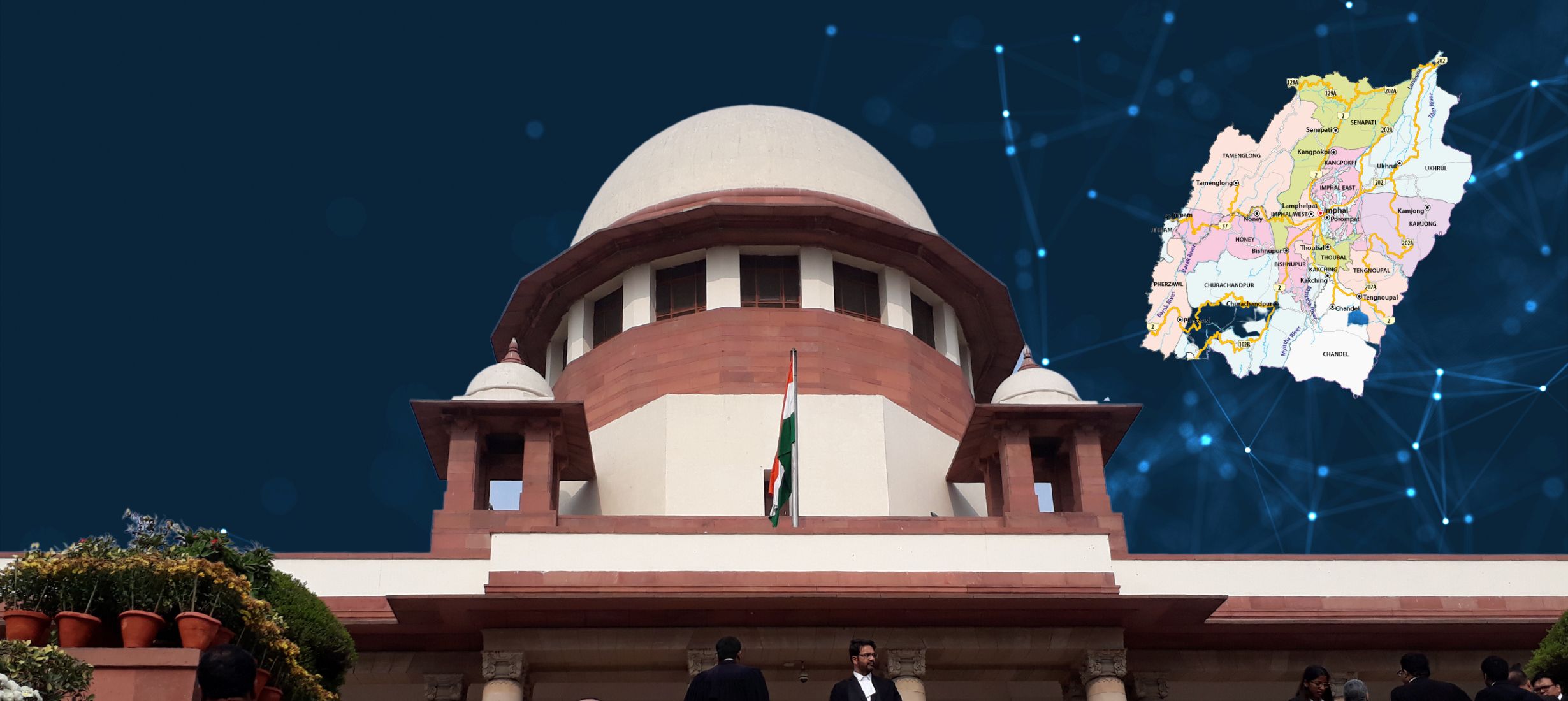Analysis
What is the Challenge to the Manipur Internet Shutdown?
The Supreme Court will decide the constitutional validity of the Internet shutdown in Manipur.

On May 3rd, 2023, a violent clash erupted during a ‘Tribal Solidarity March’ in Manipur. The march was organised to protest against the inclusion of the Meitei community in the Scheduled Tribes (ST) category. The Nagas and Kuki tribes, in particular, opposed the inclusion due to the Meitei community’s majority population and political representation in the region.
The State of Manipur ordered a state-wide internet shutdown to tackle the escalating violence. The notification stated that the shutdown will prevent ‘anti-social elements’ from misusing social media platforms to incite the public, spread false rumours, and share hateful content. The shutdown was initially planned for five days. On May 7th, 2023, the protests and violence appeared to come under control. However, restrictions on internet access continued and were extended six times on May 4th, May 7th, May 11th, May 16th, May 21st, and May 26th 2023.
On May 28th, 2023, two petitioners, Chongtham Victor Singh and Mayengbam James MC, filed a Writ Petition in the Supreme Court challenging the internet shutdown. Mr. Singh is a practising lawyer at the Manipur High Court and Mr. James is a proprietor of a brand communications company. By May 28th, Manipur had experienced 24 days of no internet access.
The petitioners argued that the shutdown continued indefinitely even after the situation had ‘de-escalated’. They asserted that the lack of internet access had severely impacted their lives and livelihoods, violating their fundamental rights guaranteed under Articles 19 and 21 of the Constitution.
The petitioners referred to Anuradha Bhasin v Union of India (2020), where the SC held that an indefinite suspension of internet services was contrary to the law. Anuradha Bhasin recognised that the freedom of expression and the freedom to engage in trade or business over the Internet are constitutionally protected rights. The petitioners stated that the ongoing suspension of internet services prevented them from accessing funds from banks, receiving payments from clients, distributing salaries, and communicating via email or WhatsApp.
They further argued that the suspension orders violated Section 5(2) of the Telegraph Act, 1885 and the Telegraph Rules. According to Section 5(2), internet services can be suspended only during a ‘public emergency’ or in the ‘interest of public safety.’ The petitioners claimed that the orders did not explicitly mention or refer to a public emergency. The orders merely cited a threat to ‘law and order’ and the presence of ‘anti-social elements’.
Mr. Singh and Mr. James requested the Supreme Court to declare that the shutdown was ‘illegal’ and restore internet access in Manipur.
On June 9th, 2023, a vacation bench comprising Justices Aniruddha Bose and Rajesh Bindal refused to ‘urgently intervene’ stating that the Manipur High Court was already dealing with the matter. A regular bench would hear the petition after the summer vacation. On June 15th, 2023, the internet shutdown was extended for five more days up to June 20th, 2023. On 20th June 2023, the Manipur HC granted limited internet services at designated places.
